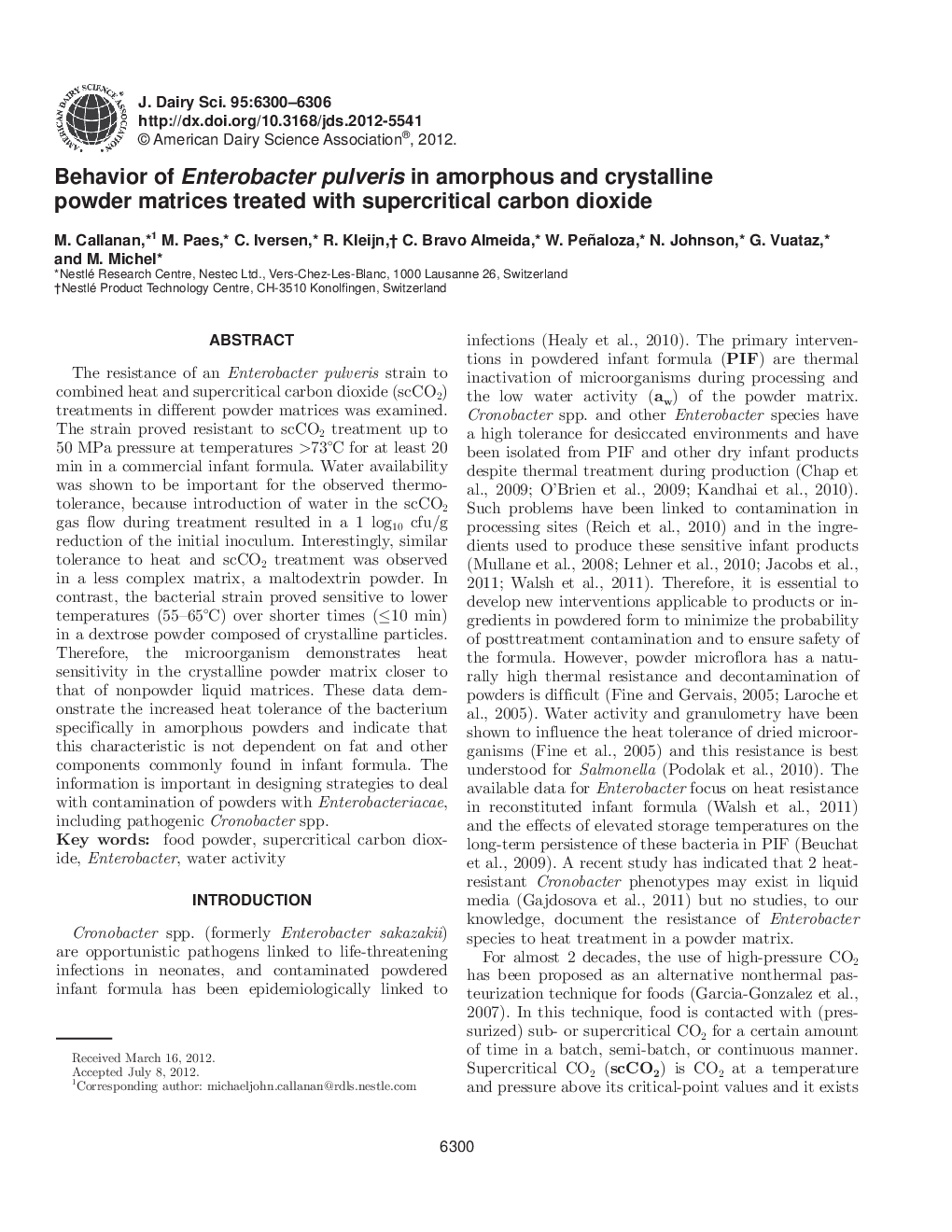| Article ID | Journal | Published Year | Pages | File Type |
|---|---|---|---|---|
| 10979469 | Journal of Dairy Science | 2012 | 7 Pages |
Abstract
The resistance of an Enterobacter pulveris strain to combined heat and supercritical carbon dioxide (scCO2) treatments in different powder matrices was examined. The strain proved resistant to scCO2 treatment up to 50 MPa pressure at temperatures >73°C for at least 20 min in a commercial infant formula. Water availability was shown to be important for the observed thermotolerance, because introduction of water in the scCO2 gas flow during treatment resulted in a 1 log10 cfu/g reduction of the initial inoculum. Interestingly, similar tolerance to heat and scCO2 treatment was observed in a less complex matrix, a maltodextrin powder. In contrast, the bacterial strain proved sensitive to lower temperatures (55-65°C) over shorter times (â¤10 min) in a dextrose powder composed of crystalline particles. Therefore, the microorganism demonstrates heat sensitivity in the crystalline powder matrix closer to that of nonpowder liquid matrices. These data demonstrate the increased heat tolerance of the bacterium specifically in amorphous powders and indicate that this characteristic is not dependent on fat and other components commonly found in infant formula. The information is important in designing strategies to deal with contamination of powders with Enterobacteriacae, including pathogenic Cronobacter spp.
Related Topics
Life Sciences
Agricultural and Biological Sciences
Animal Science and Zoology
Authors
M. Callanan, M. Paes, C. Iversen, R. Kleijn, C. Bravo Almeida, W. Peñaloza, N. Johnson, G. Vuataz, M. Michel,
